The Animal Science and Forages team at Auburn University is making...
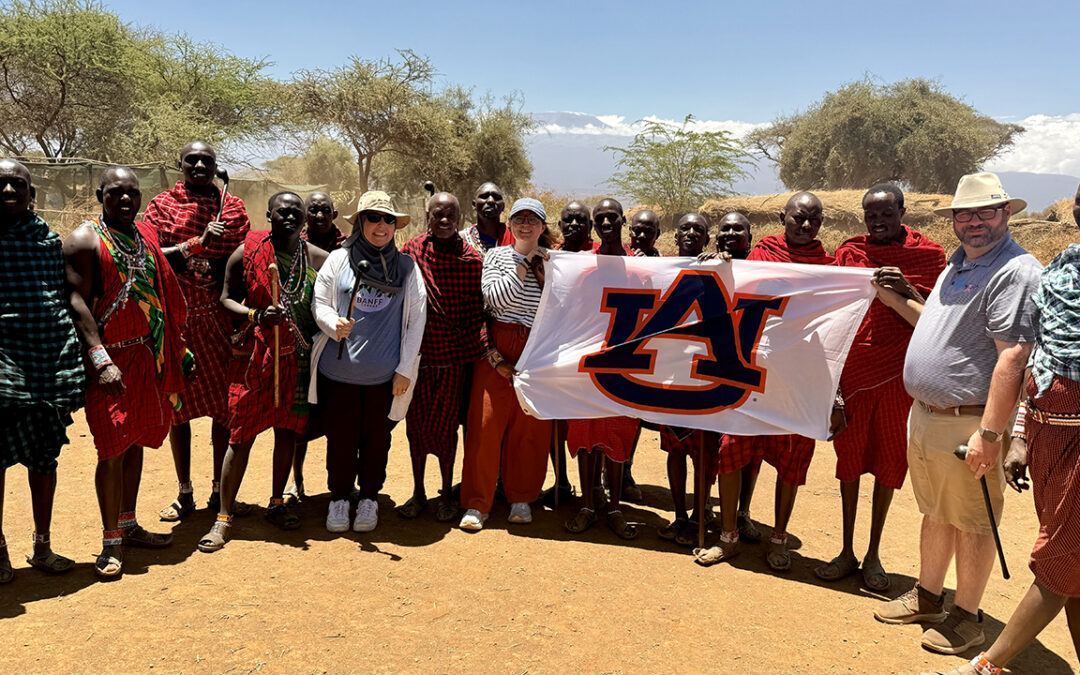

The Animal Science and Forages team at Auburn University is making...
The holiday season means a time for not only giving gifts but giving back to our communities with a joyful spirit. Jeremy Pickens, assistant extension professor at Auburn University, spread holiday cheer by donating 200 Christmas trees through the Trees for Troops...
A candidate for a Bachelor of Science in agricultural business and economics is the fall 2025 student marshal for the Auburn University College of Agriculture. Olivia Hudson’s time in the college has been punctuated by extensive student leadership opportunities. She...

Next month, honeybee enthusiasts are invited to attend the 31st Annual Alabama Beekeepers Symposium. The event will take place on February 7. Alabama Extension System...
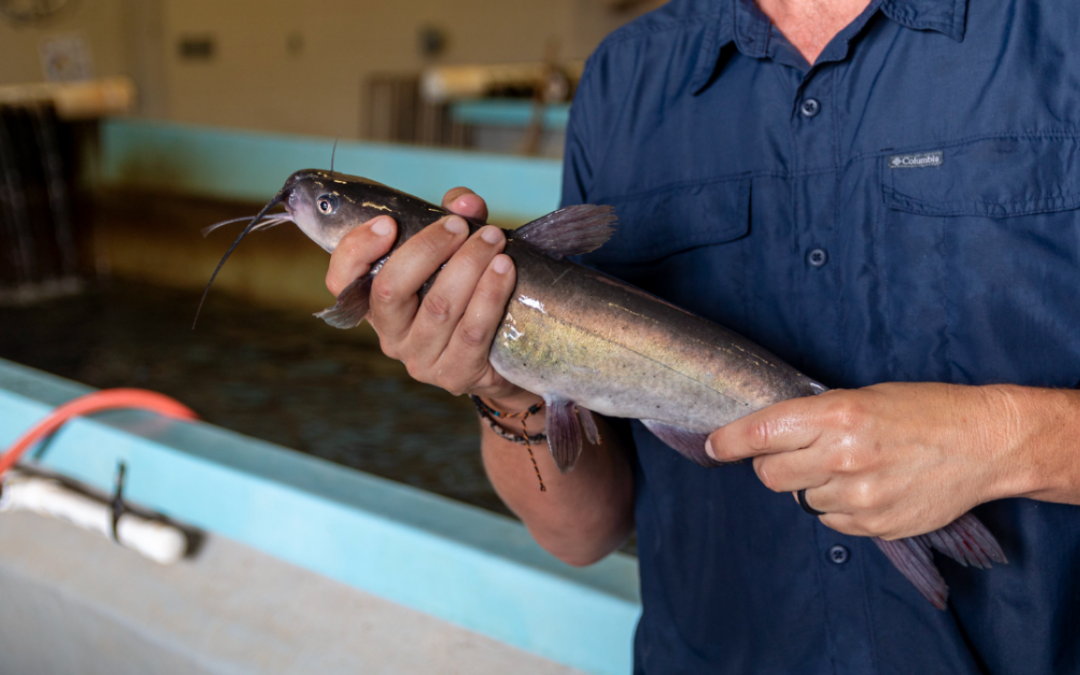
Fish scientists at Auburn University have recently refined a gene replacement method for transferring a advantageous gene from alligators into catfish to increase...
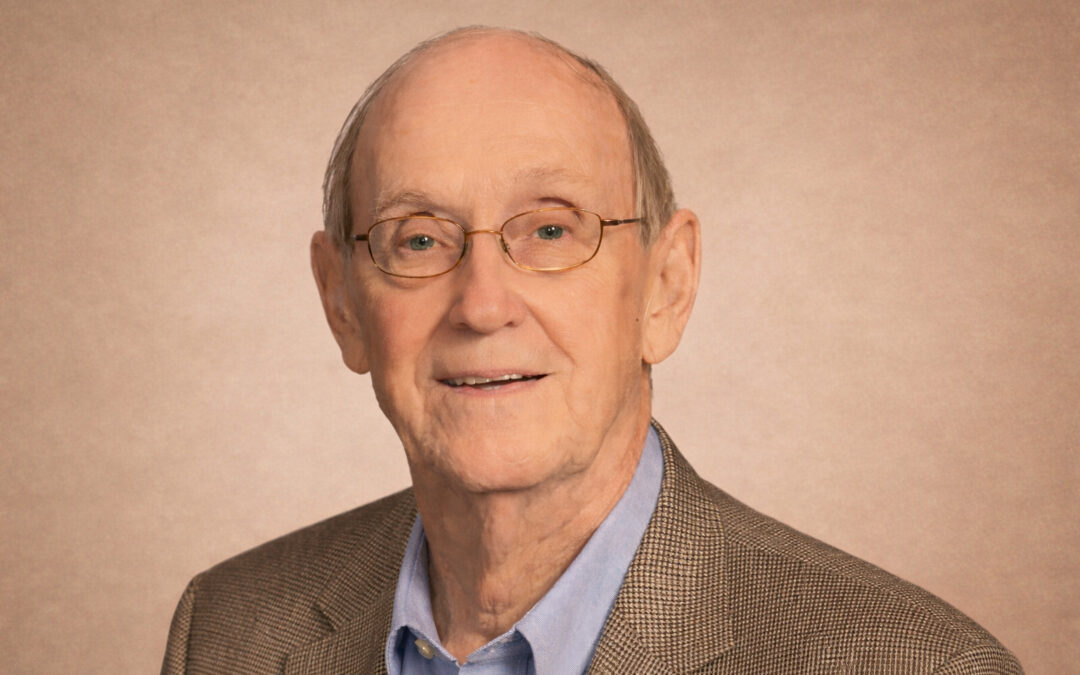
Retired professor and head emeritus of biosystems engineering Paul K. Turnquist passed away Dec. 11. Turnquist joined the Auburn family as a department head in 1977...
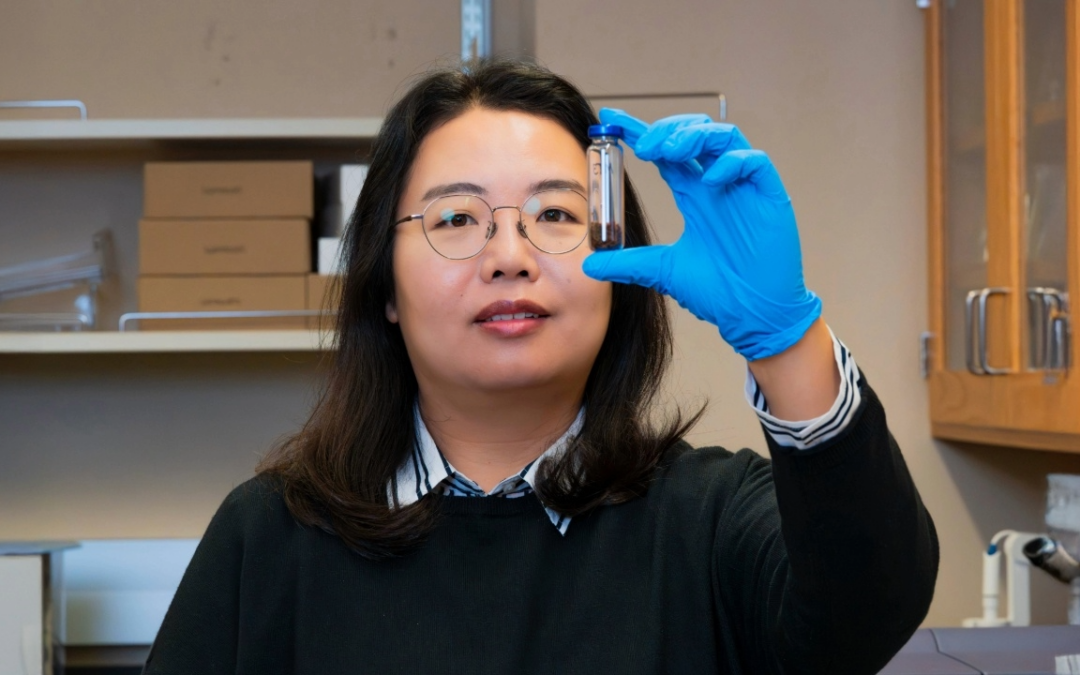
Food scientist recognized for teaching excellence In Assistant Professor Sungeun Cho’s classroom, food isn’t just something to taste — it’s a gateway to science, culture and innovation. Through courses like FDSC 1000, Introduction to Food Science, Cho helps students...
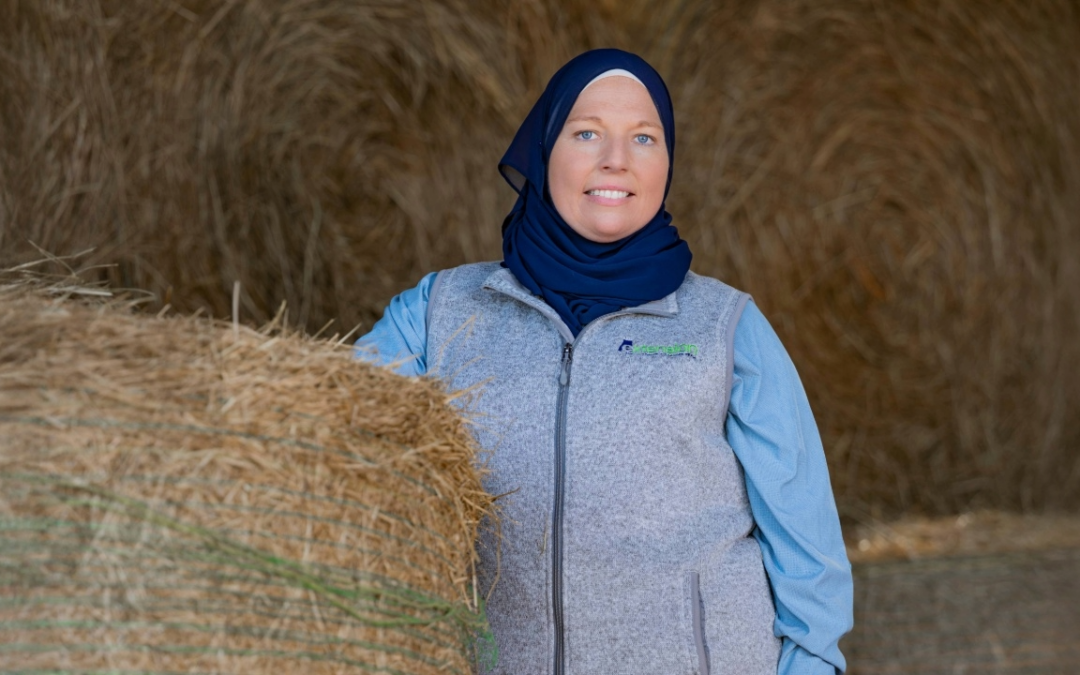
Leanne Dillard has always loved puzzles, and her work as an associate professor and an Alabama Cooperative Extension System specialist is like one big puzzle.
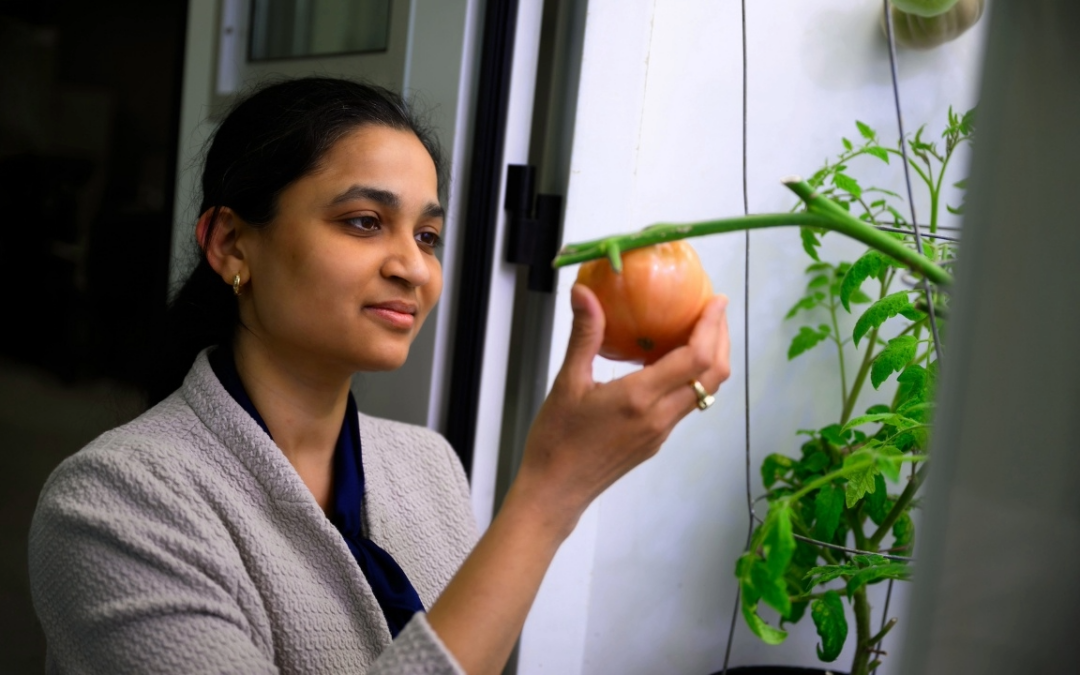
Winning the war against stealthy pathogens
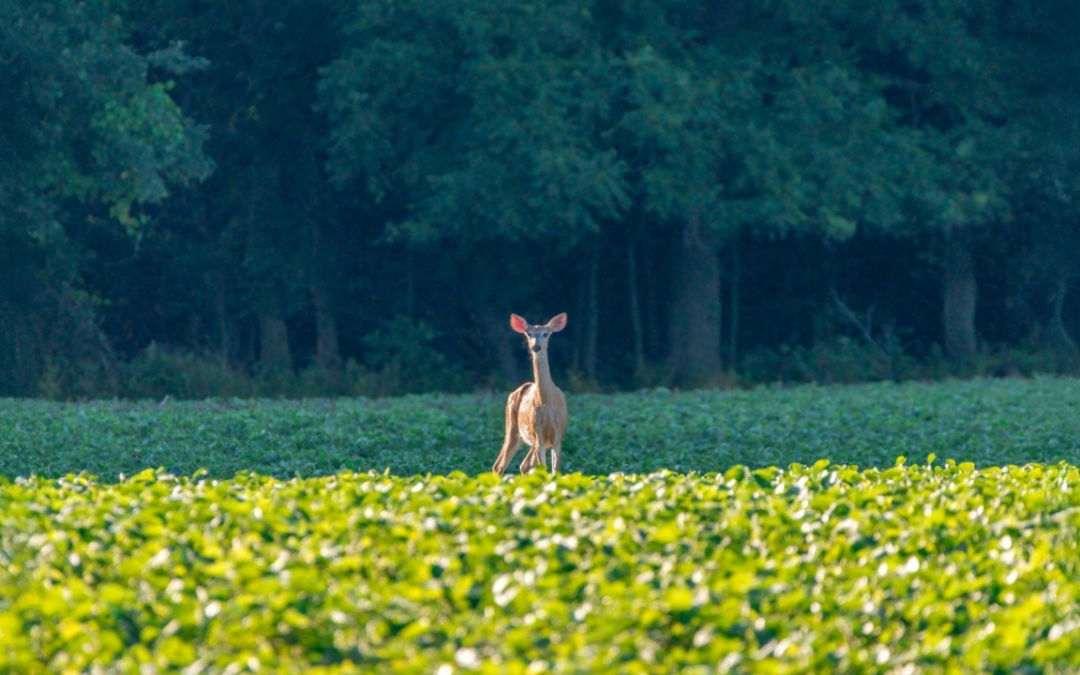
From seed selection to pesticide application, farmers work diligently to manage every factor that influences yield—but wildlife damage in row crops remains one of the most troublesome aspects to control. To help find solutions, assistant professor and Alabama...
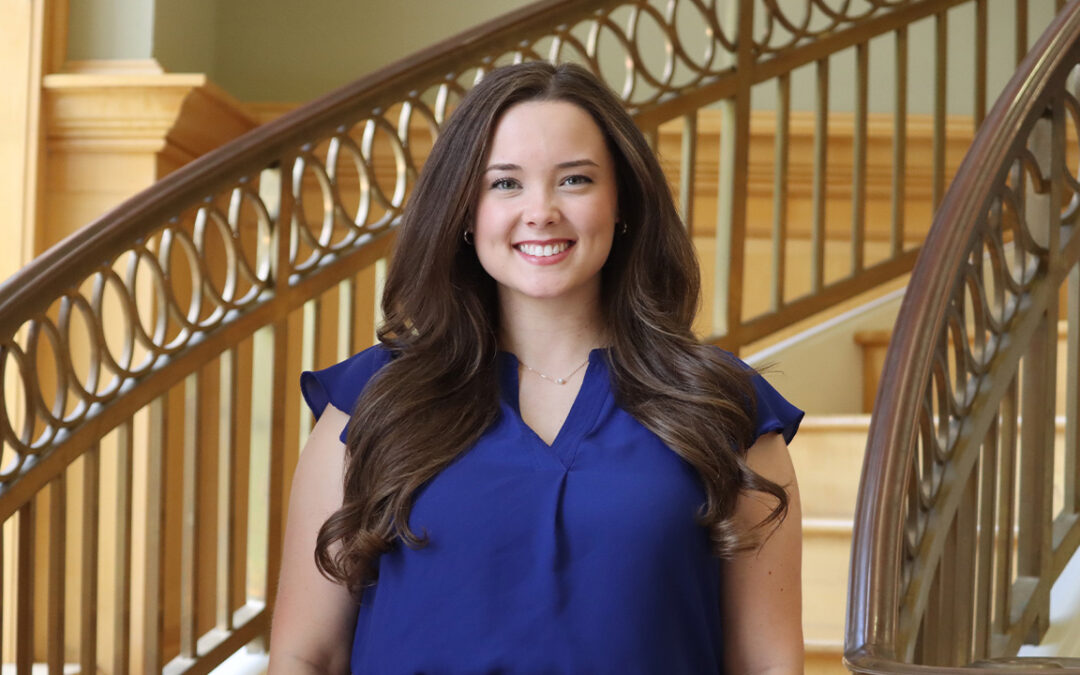
By Machaira Christopher When Ally Jackson first came to Auburn, she felt at home — so much so that she stayed for three degrees. Having completed her bachelor’s and master’s degrees in poultry science on the Plains, Jackson is currently working toward a doctorate in...
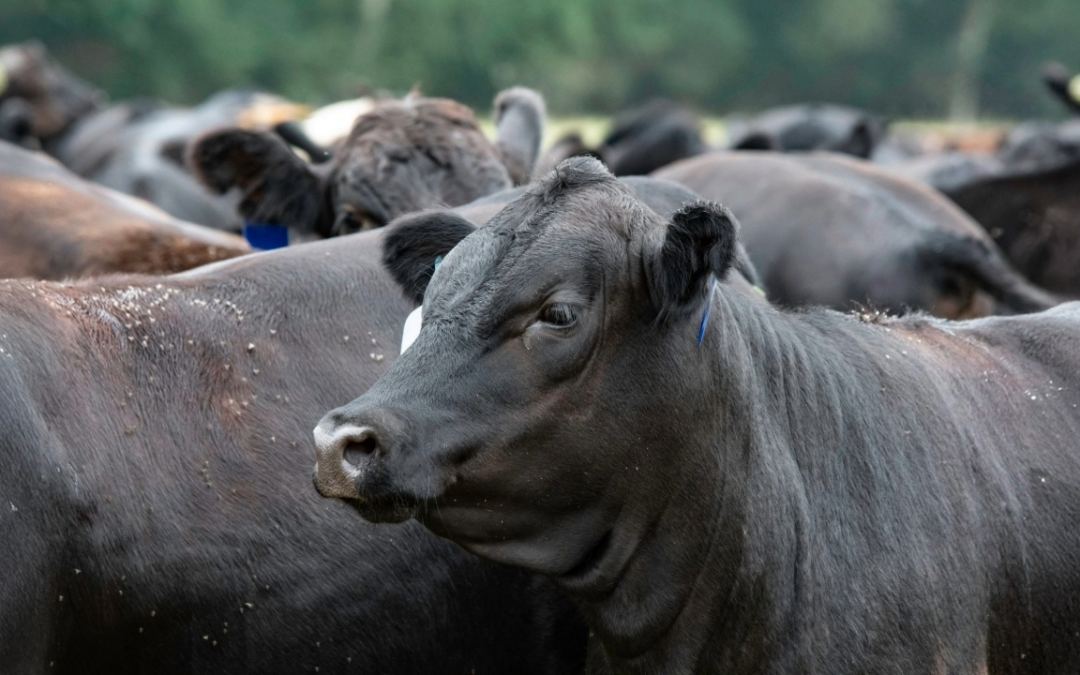
The common parasitic horn fly (Haemotabia irritans) can drain up to a pint of cow blood every week, and they are fast becoming resistant to insecticide. Researchers at the Alabama Agricultural Experiment Station are working to develop smarter solutions for Alabama’s...
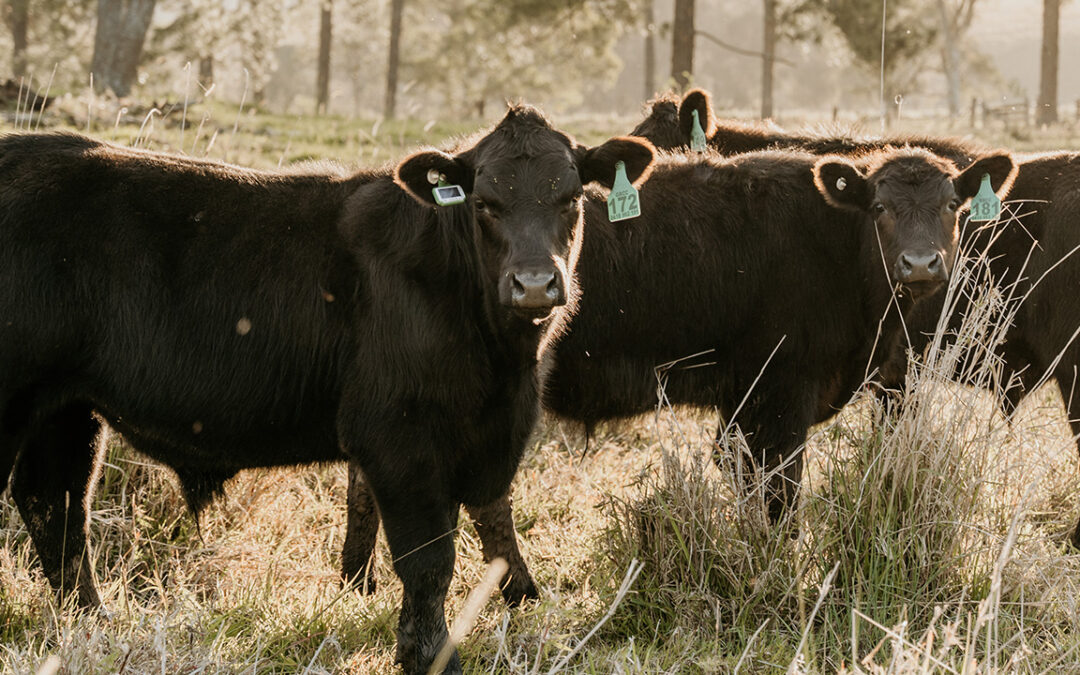
Partnership with CERES TAG to enhance data collection The Department of Animal Sciences in the Auburn University College of Agriculture recently announced a partnership with CERES TAG, a leading global animal health intelligence platform to improve livestock...
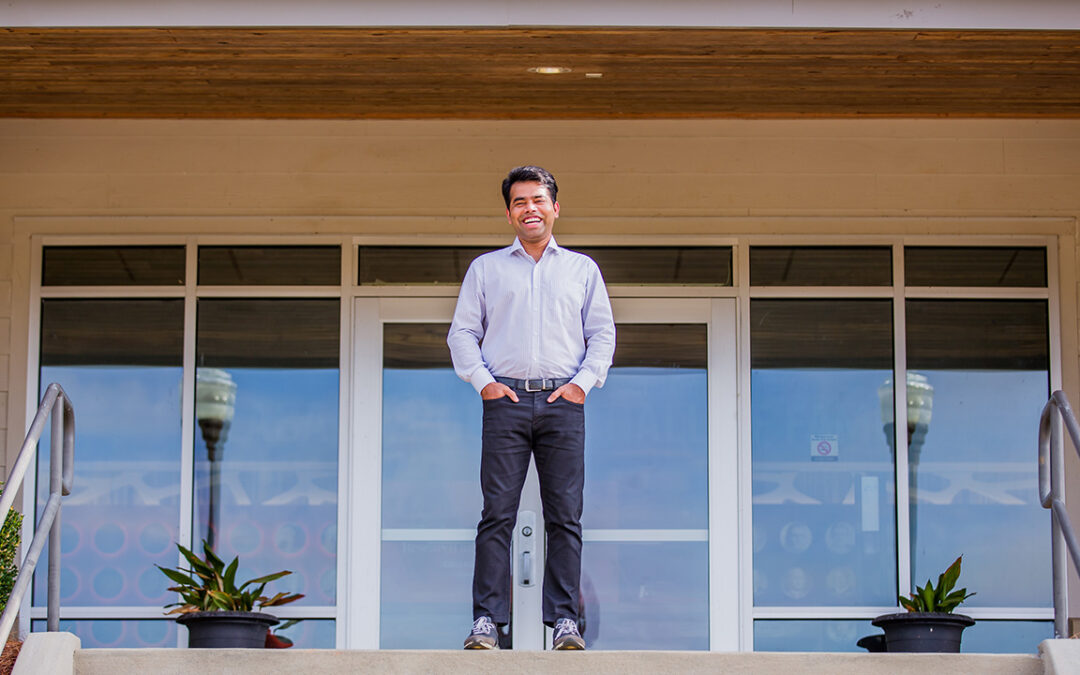
When Dr. Rana Waqar Tabish came to Auburn to begin working toward his PhD, he already had one doctorate under his belt….

By Graham Brooks New and special beer releases are a point of pride at New Realm Brewing–Auburn and that will continue with the unveiling of Pine Hill Pumpkin Amber as a new pumpkin beer just in time for spooky season and Oktoberfest. Named after Auburn’s oldest...

After more than 40 years of teaching, scholarship, leadership development and service, Auburn University Associate Professor Don Mulvaney announced his professional retirement, effective Oct. 1. A longtime faculty member in the Department of Animal Sciences, Mulvaney...
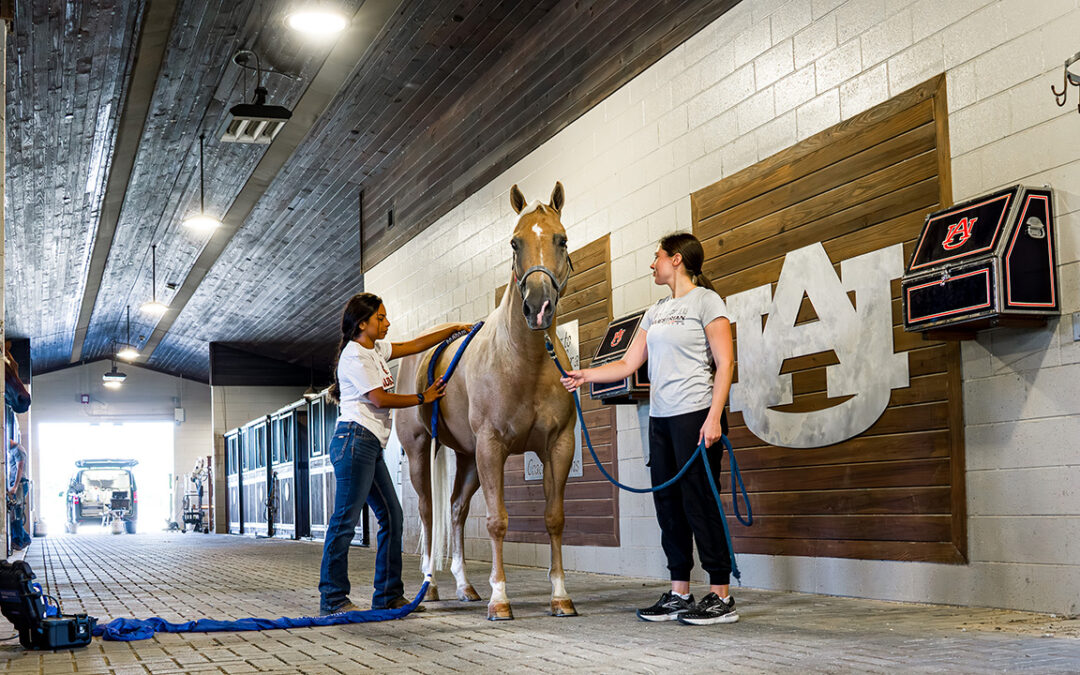
At Auburn University, students are taught to meet a practical world with hard work, knowledge to work wisely, and minds and hands trained to work skillfully. Few places embody this charge outlined in the Auburn Creed more vividly than the Auburn University Equestrian...
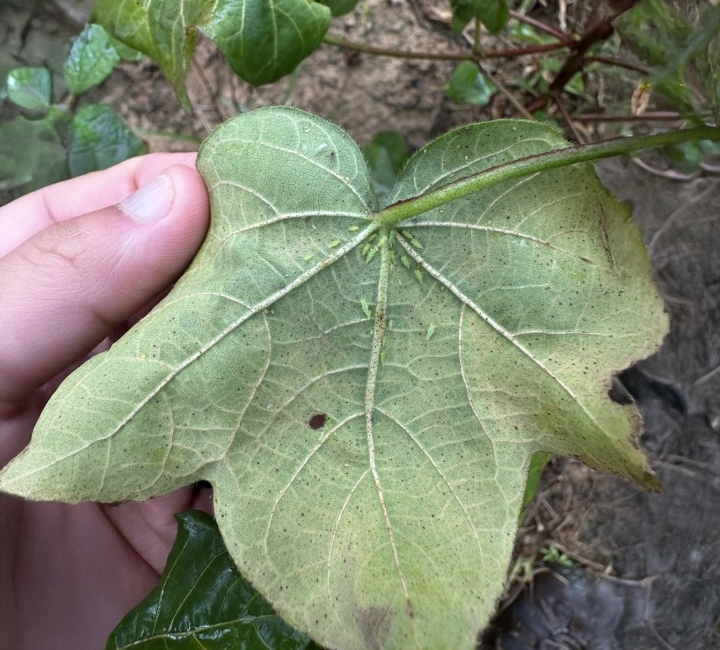
In an already stressful and trying growing season, researchers at Auburn University and Alabama Cooperative Extension professionals have confirmed an invasive insect, the two-spot cotton leafhopper, in cotton fields in Alabama. The insect is also commonly known as the...
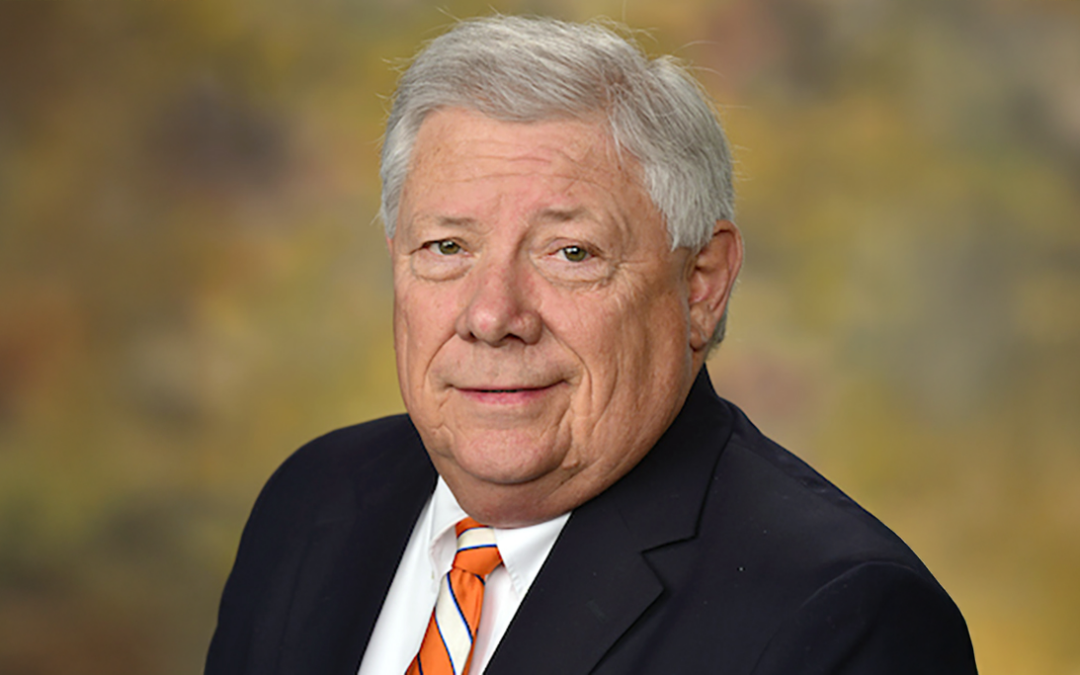
Auburn University Professor of Animal Sciences Wayne Greene was recognized by a national organization for significant contributions to animal sciences through teaching, research, service or industry. The Distinguished Professional Animal Scientist Award is presented...
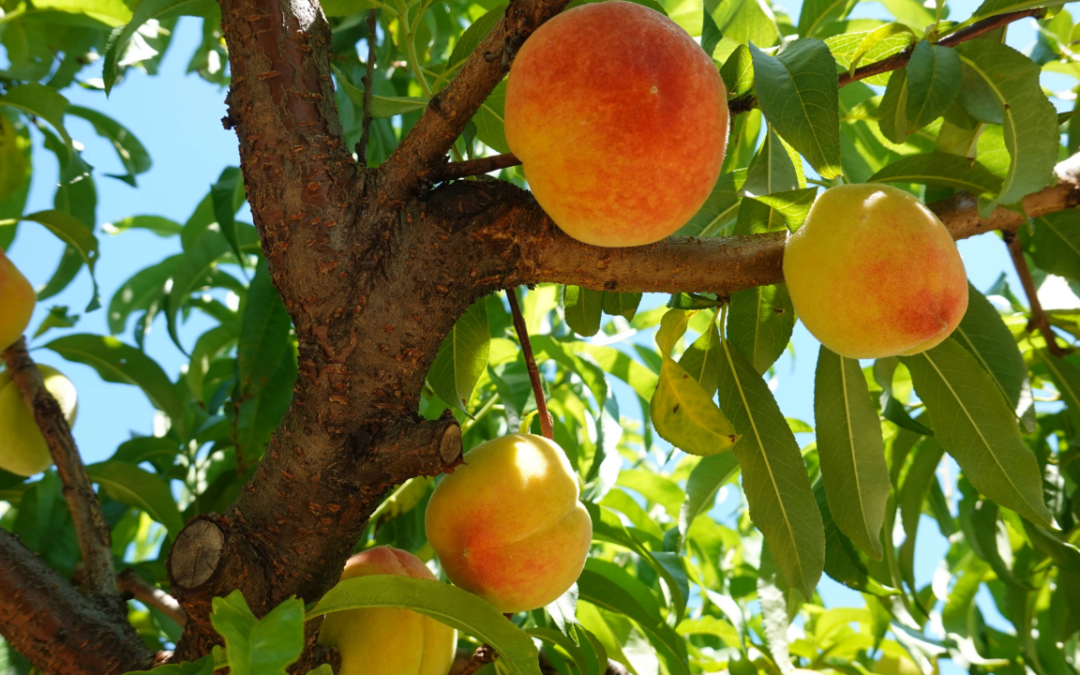
Right in the heart of central Alabama, research is conducted throughout the year to find ways to protect one of the state’s most precious commodities—peaches. Among the most damaging diseases affecting stone fruit—especially peaches—is bacterial spot. As a result,...
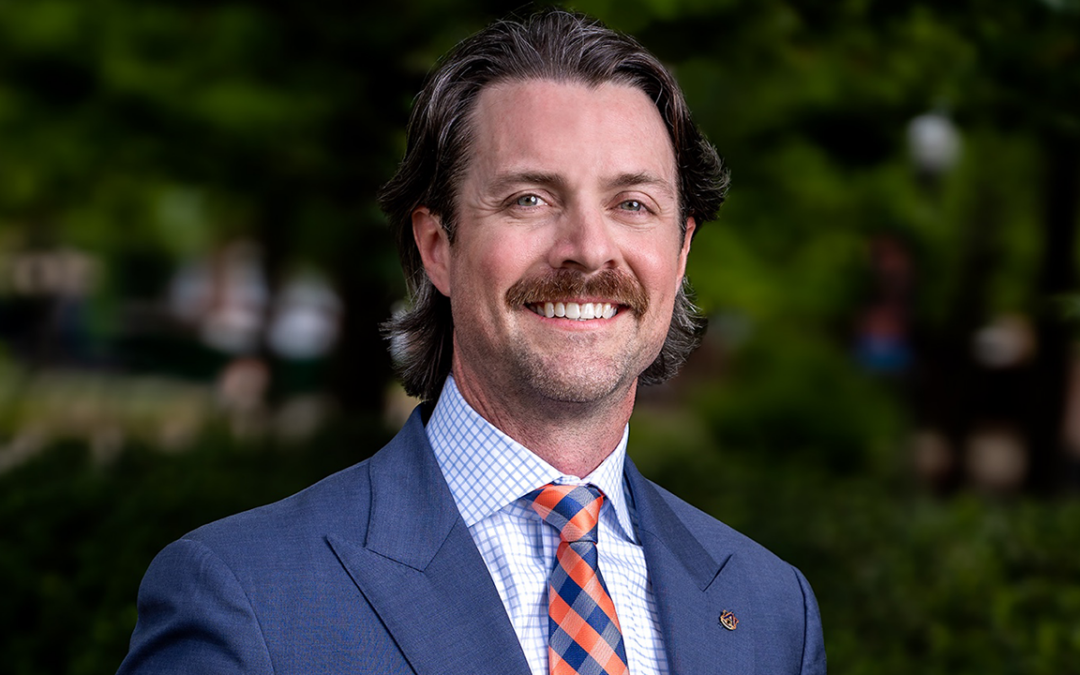
Postdoc recognized by the American Society of Parasitologists A postdoctoral fellow in the School of Fisheries, Aquaculture & Aquatic Sciences recently received the highest national honor bestowed upon early-career researchers in the field of parasitology. Micah...
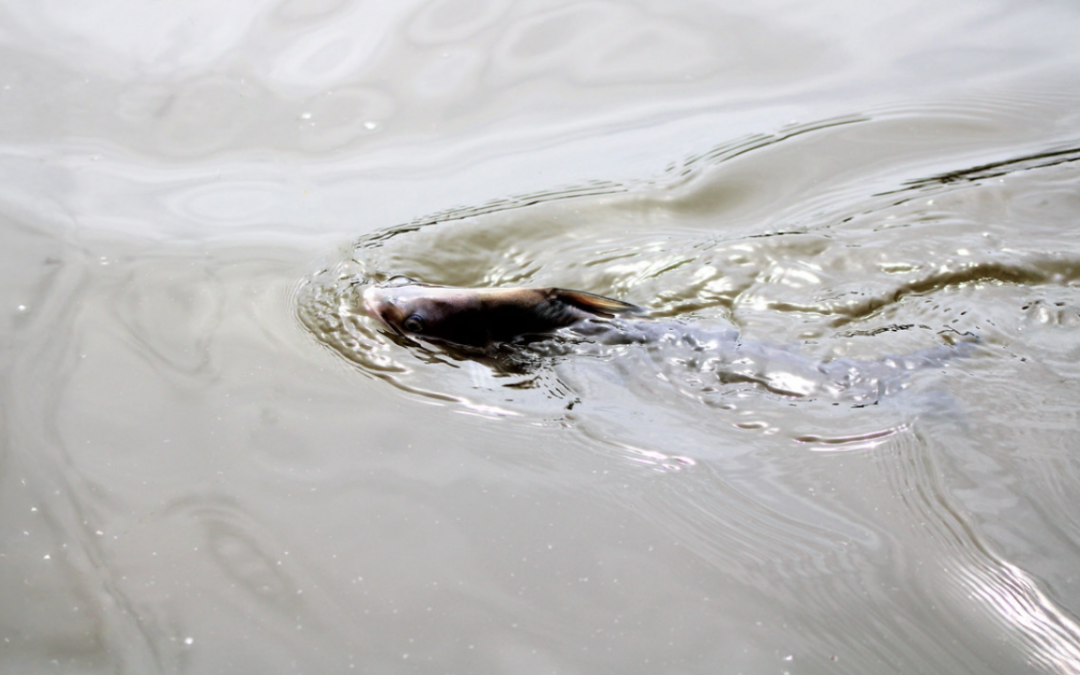
AU researchers work toward getting orally-delivered vaccines to catfish farmers

It was in Honduras, at the Soto Cano Air Base, where Capt. Tolulope Morawo and Lt. Col. Steven “Mark” Pelham met an enemy they had never encountered before. Morawo, an entomologist, and Pelham, a veterinarian, were on Army Reserve deployment facing the New World...
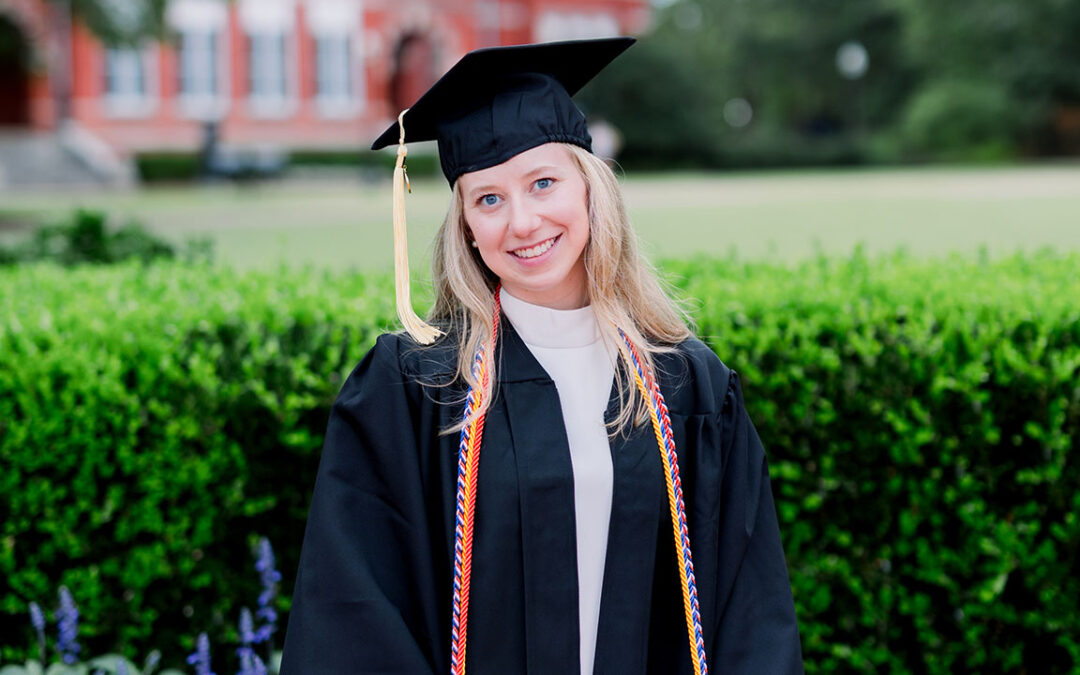
A Madison, Alabama, native will lead her classmates into the 2025 commencement ceremony at Auburn University this Saturday. Ella Taylor, an agricultural science major with a minor in poultry science, is the August 2025 graduation marshal for the College of...
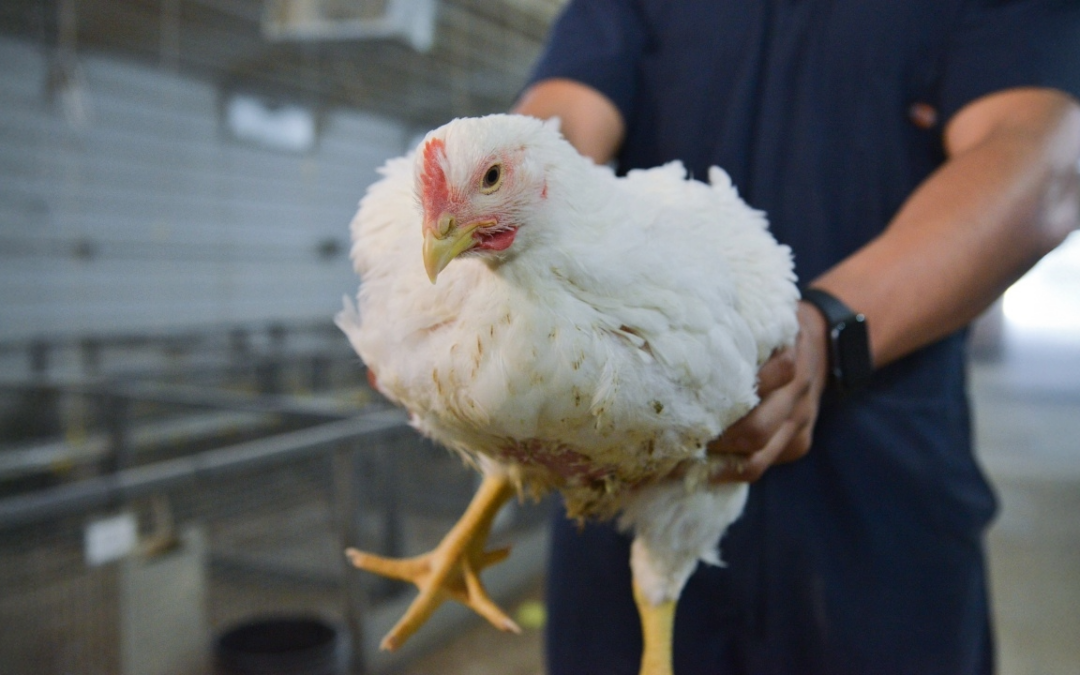
Researchers at Auburn University recently developed new methods for safely using poultry processing wastewater for food-grade hydroponic crop production. By eliminating pathogens, like salmonella, the research team was able to use wastewater from a poultry processing...
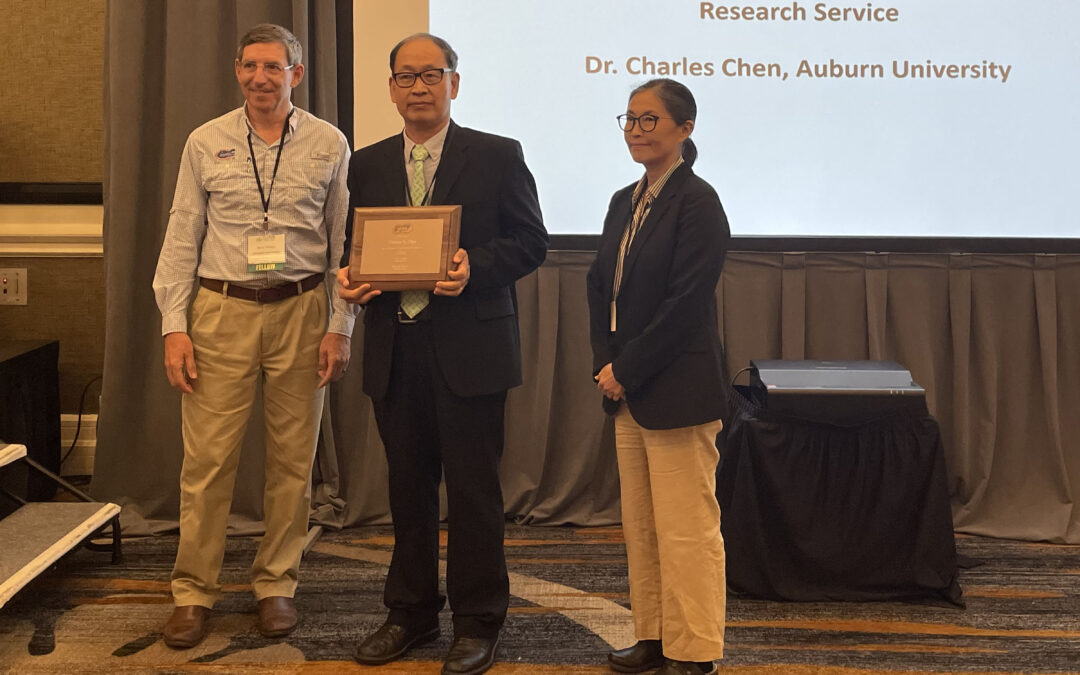
Auburn University Professor Charles Chen was recently recognized for outstanding contributions to his field of peanut breeding and genetics. At the 57th annual meeting of the American Peanut Research & Education Society (APRES) July 15-17 in Richmond, Virginia,...
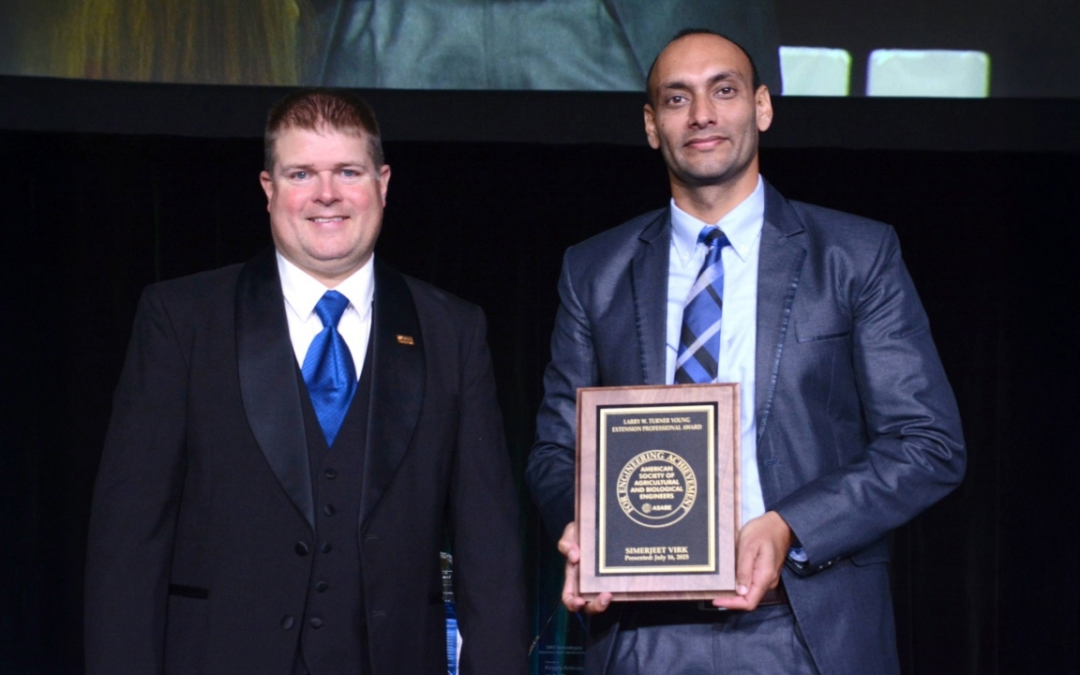
Auburn University’s Biosystems Engineering faculty and students garnered high honors and awards recognition through a prestigious international organization.

Food scientist recognized for teaching excellence In Assistant Professor Sungeun Cho’s classroom, food isn’t just something to taste — it’s a gateway to science, culture and innovation. Through courses like FDSC 1000, Introduction to Food Science, Cho helps students...

Leanne Dillard has always loved puzzles, and her work as an associate professor and an Alabama Cooperative Extension System specialist is like one big puzzle.

Winning the war against stealthy pathogens

From seed selection to pesticide application, farmers work diligently to manage every factor that influences yield—but wildlife damage in row crops remains one of the most troublesome aspects to control. To help find solutions, assistant professor and Alabama...

By Machaira Christopher When Ally Jackson first came to Auburn, she felt at home — so much so that she stayed for three degrees. Having completed her bachelor’s and master’s degrees in poultry science on the Plains, Jackson is currently working toward a doctorate in...

The common parasitic horn fly (Haemotabia irritans) can drain up to a pint of cow blood every week, and they are fast becoming resistant to insecticide. Researchers at the Alabama Agricultural Experiment Station are working to develop smarter solutions for Alabama’s...

Partnership with CERES TAG to enhance data collection The Department of Animal Sciences in the Auburn University College of Agriculture recently announced a partnership with CERES TAG, a leading global animal health intelligence platform to improve livestock...

When Dr. Rana Waqar Tabish came to Auburn to begin working toward his PhD, he already had one doctorate under his belt….

By Graham Brooks New and special beer releases are a point of pride at New Realm Brewing–Auburn and that will continue with the unveiling of Pine Hill Pumpkin Amber as a new pumpkin beer just in time for spooky season and Oktoberfest. Named after Auburn’s oldest...

After more than 40 years of teaching, scholarship, leadership development and service, Auburn University Associate Professor Don Mulvaney announced his professional retirement, effective Oct. 1. A longtime faculty member in the Department of Animal Sciences, Mulvaney...

At Auburn University, students are taught to meet a practical world with hard work, knowledge to work wisely, and minds and hands trained to work skillfully. Few places embody this charge outlined in the Auburn Creed more vividly than the Auburn University Equestrian...

In an already stressful and trying growing season, researchers at Auburn University and Alabama Cooperative Extension professionals have confirmed an invasive insect, the two-spot cotton leafhopper, in cotton fields in Alabama. The insect is also commonly known as the...

Auburn University Professor of Animal Sciences Wayne Greene was recognized by a national organization for significant contributions to animal sciences through teaching, research, service or industry. The Distinguished Professional Animal Scientist Award is presented...

Right in the heart of central Alabama, research is conducted throughout the year to find ways to protect one of the state’s most precious commodities—peaches. Among the most damaging diseases affecting stone fruit—especially peaches—is bacterial spot. As a result,...

Postdoc recognized by the American Society of Parasitologists A postdoctoral fellow in the School of Fisheries, Aquaculture & Aquatic Sciences recently received the highest national honor bestowed upon early-career researchers in the field of parasitology. Micah...

AU researchers work toward getting orally-delivered vaccines to catfish farmers

It was in Honduras, at the Soto Cano Air Base, where Capt. Tolulope Morawo and Lt. Col. Steven “Mark” Pelham met an enemy they had never encountered before. Morawo, an entomologist, and Pelham, a veterinarian, were on Army Reserve deployment facing the New World...

A Madison, Alabama, native will lead her classmates into the 2025 commencement ceremony at Auburn University this Saturday. Ella Taylor, an agricultural science major with a minor in poultry science, is the August 2025 graduation marshal for the College of...

Researchers at Auburn University recently developed new methods for safely using poultry processing wastewater for food-grade hydroponic crop production. By eliminating pathogens, like salmonella, the research team was able to use wastewater from a poultry processing...

Auburn University Professor Charles Chen was recently recognized for outstanding contributions to his field of peanut breeding and genetics. At the 57th annual meeting of the American Peanut Research & Education Society (APRES) July 15-17 in Richmond, Virginia,...

Auburn University’s Biosystems Engineering faculty and students garnered high honors and awards recognition through a prestigious international organization.